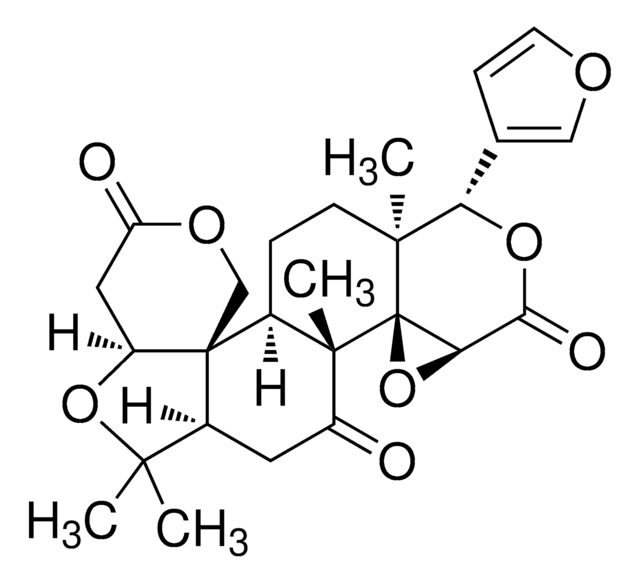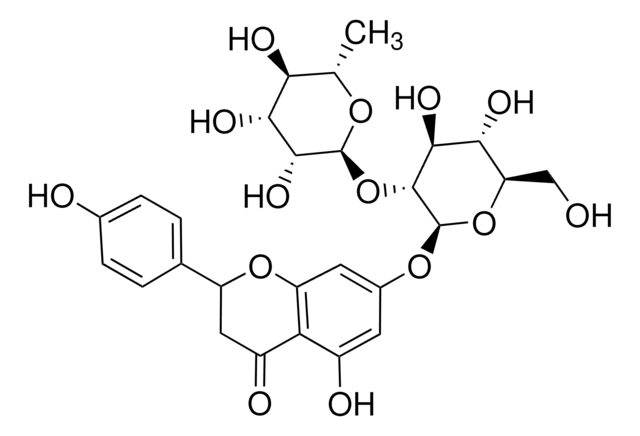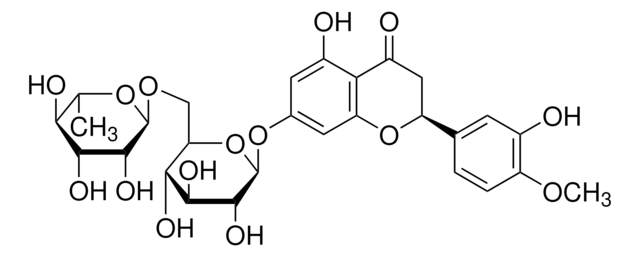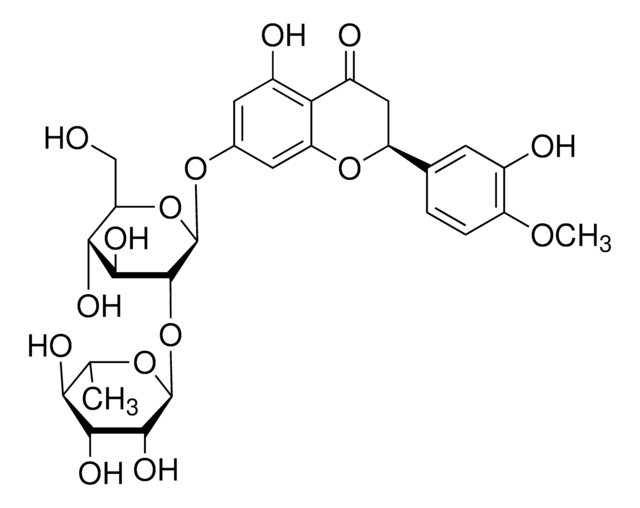L9647
Limonin
from citrus seeds, >90% (HPLC)
Synonym(s):
Citrolimonin, Dictamnolactone, Evodin, Limonoic acid 3,19:16,17 dilactone, Obaculactone
About This Item
Recommended Products
biological source
citrus seeds
Quality Level
Assay
>90% (HPLC)
form
powder
application(s)
metabolomics
vitamins, nutraceuticals, and natural products
storage temp.
2-8°C
SMILES string
CC1(C)O[C@H]2CC(=O)OC[C@]23[C@H]4CC[C@@]5(C)[C@@H](OC(=O)[C@H]6O[C@@]56[C@]4(C)C(=O)C[C@@H]13)c7ccoc7
InChI
1S/C26H30O8/c1-22(2)15-9-16(27)24(4)14(25(15)12-31-18(28)10-17(25)33-22)5-7-23(3)19(13-6-8-30-11-13)32-21(29)20-26(23,24)34-20/h6,8,11,14-15,17,19-20H,5,7,9-10,12H2,1-4H3/t14-,15-,17-,19-,20+,23-,24-,25+,26+/m0/s1
InChI key
KBDSLGBFQAGHBE-MSGMIQHVSA-N
Looking for similar products? Visit Product Comparison Guide
General description
Application
- to treat human peripheral blood mononuclear cells (PBMCs) to test its effect on human immunodeficiency virus (HIV) replication
- to test its effects as an anti-osteoporosis agent in osteoblastogenesis activity in MC3T3-E1 cells and ovariectomized (OVX) rat model
- as a reference standard in high-performance liquid chromatography (HPLC) system
Biochem/physiol Actions
Storage Class Code
11 - Combustible Solids
WGK
WGK 3
Flash Point(F)
Not applicable
Flash Point(C)
Not applicable
Choose from one of the most recent versions:
Certificates of Analysis (COA)
Don't see the Right Version?
If you require a particular version, you can look up a specific certificate by the Lot or Batch number.
Already Own This Product?
Find documentation for the products that you have recently purchased in the Document Library.
Our team of scientists has experience in all areas of research including Life Science, Material Science, Chemical Synthesis, Chromatography, Analytical and many others.
Contact Technical Service



